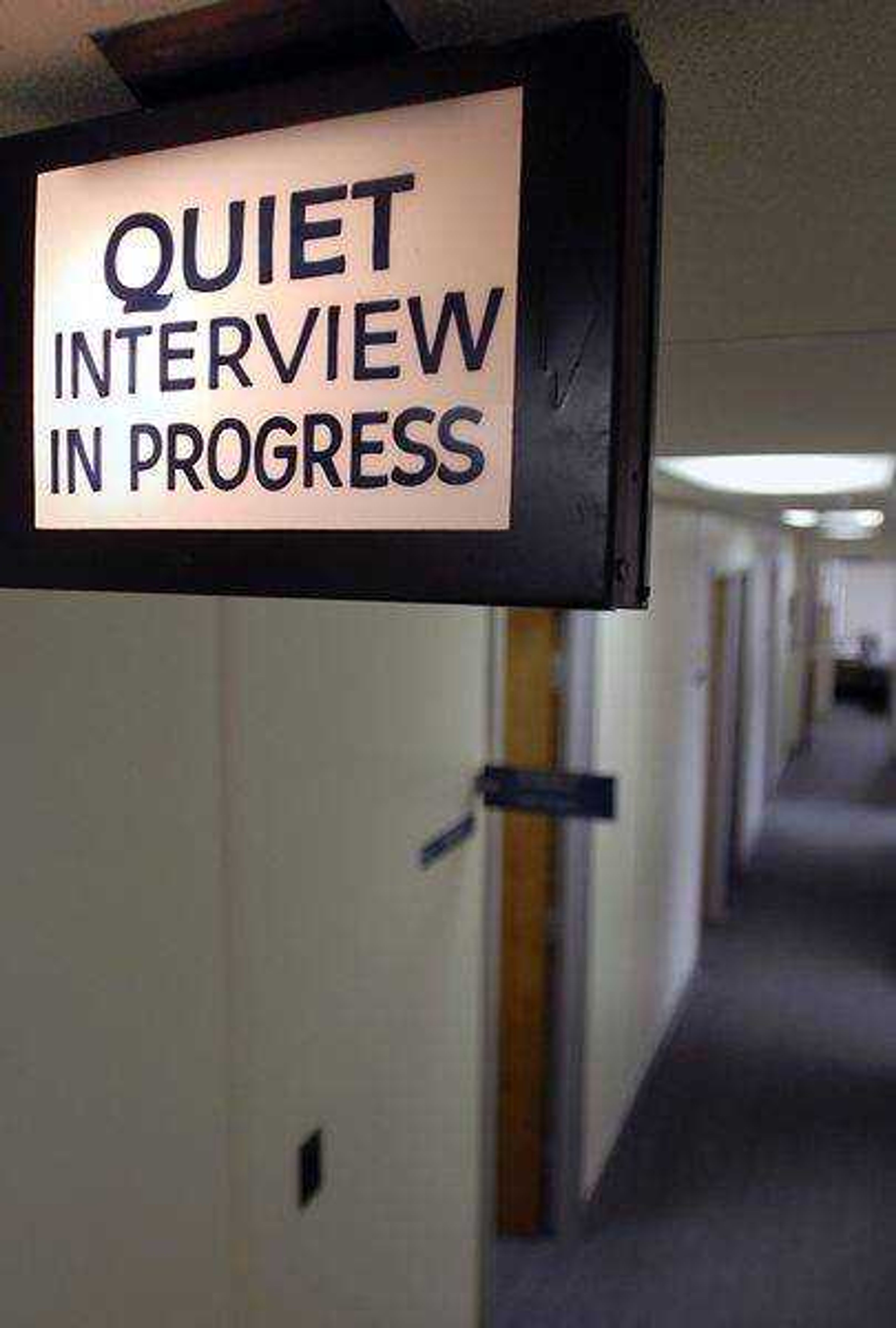Decision to record a police interview of a suspect left to officers in Mo.
In most Southeast Missouri law enforcement agencies, the decision of whether to electronically record a police interview of a suspect in custody is left in the hands of the officer conducting the interview. In 2006, a Missouri House bill requiring that such interviews be recorded on either video or audio equipment was proposed but never signed into law. Illinois was the first state to pass a law requiring that all interviews of a person accused in a felony case be recorded by police...
In most Southeast Missouri law enforcement agencies, the decision of whether to electronically record a police interview of a suspect in custody is left in the hands of the officer conducting the interview.
In 2006, a Missouri House bill requiring that such interviews be recorded on either video or audio equipment was proposed but never signed into law. Illinois was the first state to pass a law requiring that all interviews of a person accused in a felony case be recorded by police.
Most area police departments do not have written policies and leave the decision to the officer. Still, the departments prefer the interviews be recorded, at least in felony cases.
"It's protection for the officer if the defendant makes claims he was coerced," said Bollinger County Chief Deputy Leo McElrath.
Bollinger County uses a recording device during interviews in the majority of their felony cases, McElrath said.
Perry County Sheriff Gary Schaaf said he encourages his deputies to record any interviews of suspects in felony cases in case their story of what happened during the interview should change at some point in the trial process.
Scott County Sheriff's Department Capt. Gregg Ourth said recording interviews as often as possible can be useful because recorded statements often can be instrumental in persuading a defendant to plead guilty.
In Cape Girardeau, police will record an interview of a suspect in a felony case if possible, said Sgt. Barry Hovis, spokesman for the police department.
Time constraints and limited space sometimes make such recordings impractical, he said.
Another drawback is the possibility that someone will change their demeanor and clam up the minute a recorder is switched on, Hovis said.
In a homicide investigation, such interviews are always recorded, Hovis said.
"More than likely on any big case, they're gonna go ahead and record it," he said.
According to Thomas P. Sullivan, a former federal prosecutor for Illinois's Northern District and a law professor at Northwestern University School of Law, most police departments do not have any written guidelines to govern when and how recordings of police interviews should be conducted.
Sullivan questioned more than 600 police departments in 38 states, including Missouri, for a 2004 report on police experiences with recording interrogations.
"It's self-evident that making a recording of what is said and a video of what is done during an interview is far better evidence than testimony," Sullivan said.
In the case where police obtain a confession from the accused, a recording of the interview allows the jury to take note of that person's facial gestures and voice inflection, things that couldn't be recorded in officers' handwritten notes.
Common objections to the mandatory recording of interviews include cost of equipment and the fear that an accused party may hesitate to provide a confession if he knows it's recorded, although the overwhelming majority of law enforcement agencies have said they don't believe recording affects the willingness of a suspect to talk.
"Most people don't pay attention to the recording device after the first few minutes," Sullivan said.
Recording interviews with police every time someone was charged with a felony could save judicial resources by cutting down on issues that need to be litigated, said Cape Girardeau lawyer Patrick McMenamin.
McMenamin recalled a case he tried involving a mentally challenged man who he said had been hooked up to a copy machine and told it was a polygraph during an unrecorded interview with police. The statements the man made were later thrown out by a judge, he said.
"If [police] do their job right, and it's recorded, it could stop a lot of defense arguments," McMenamin said.
District Defender Chris Davis said recording a custodial interview automatically establishes a safeguard for both the accused, to ensure their rights are protected, and the officer, protecting against any false allegations of misconduct or threats.
"It's a way to provide the court with a complete, accurate and objective means of determining whether a confession was voluntary or coerced," Davis said.
Cape Girardeau Prosecuting Attorney Morley Swingle said the recording of custodial interviews is something he'd like to see more of in the future, but realizes there are budget constraints.
"There's nothing better for going to court than having a taped confession," Swingle said.
Swingle said he opposes laws making such recording mandatory because poorer, rural counties may not be able to maintain enough equipment to record every interview due to budget constraints.
bdicosmo@semissourian.com
335-6611, extension 245
Have a comment?
Log on to semissourian.com/today
Connect with the Southeast Missourian Newsroom:
For corrections to this story or other insights for the editor, click here. To submit a letter to the editor, click here. To learn about the Southeast Missourian’s AI Policy, click here.








